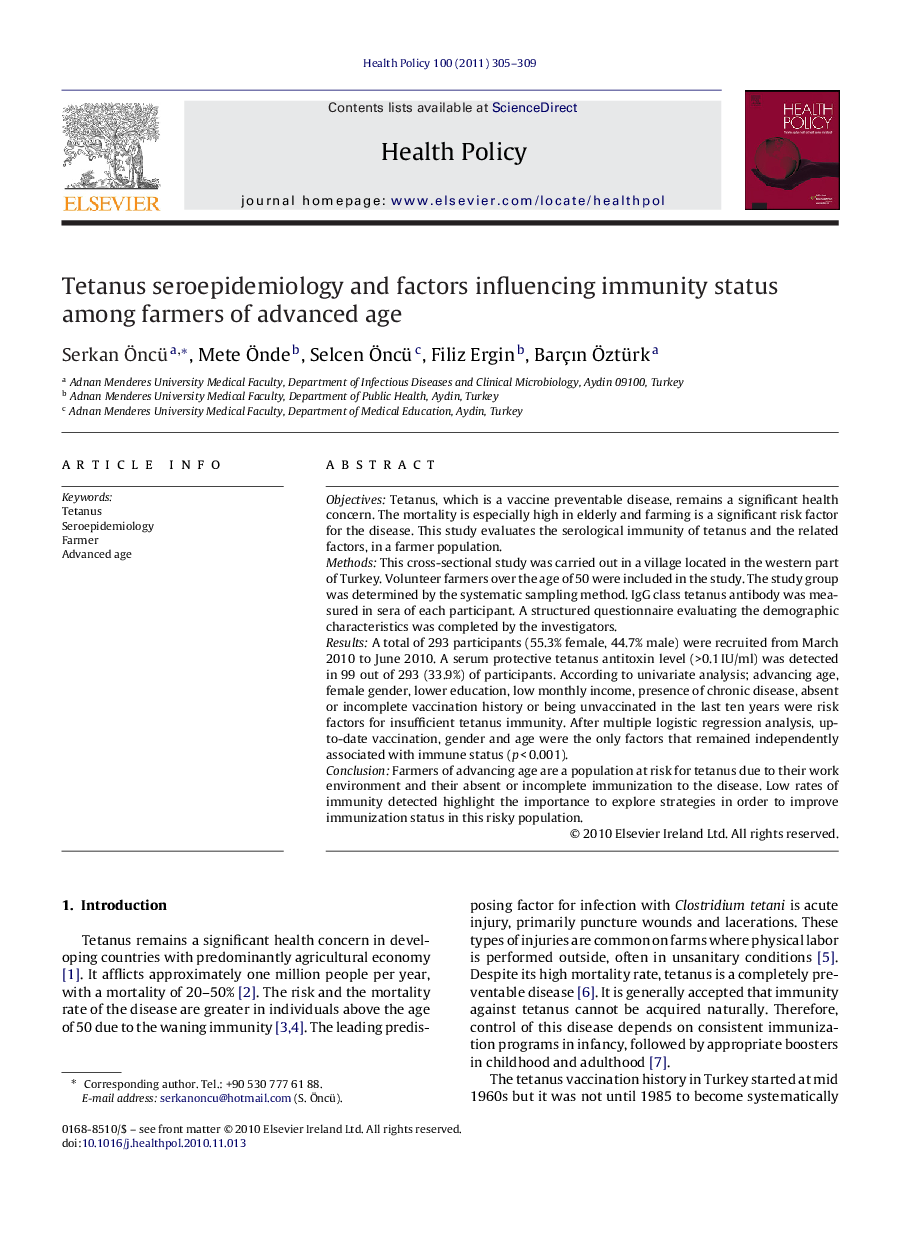| Article ID | Journal | Published Year | Pages | File Type |
|---|---|---|---|---|
| 4198172 | Health Policy | 2011 | 5 Pages |
ObjectivesTetanus, which is a vaccine preventable disease, remains a significant health concern. The mortality is especially high in elderly and farming is a significant risk factor for the disease. This study evaluates the serological immunity of tetanus and the related factors, in a farmer population.MethodsThis cross-sectional study was carried out in a village located in the western part of Turkey. Volunteer farmers over the age of 50 were included in the study. The study group was determined by the systematic sampling method. IgG class tetanus antibody was measured in sera of each participant. A structured questionnaire evaluating the demographic characteristics was completed by the investigators.ResultsA total of 293 participants (55.3% female, 44.7% male) were recruited from March 2010 to June 2010. A serum protective tetanus antitoxin level (>0.1 IU/ml) was detected in 99 out of 293 (33.9%) of participants. According to univariate analysis; advancing age, female gender, lower education, low monthly income, presence of chronic disease, absent or incomplete vaccination history or being unvaccinated in the last ten years were risk factors for insufficient tetanus immunity. After multiple logistic regression analysis, up-to-date vaccination, gender and age were the only factors that remained independently associated with immune status (p < 0.001).ConclusionFarmers of advancing age are a population at risk for tetanus due to their work environment and their absent or incomplete immunization to the disease. Low rates of immunity detected highlight the importance to explore strategies in order to improve immunization status in this risky population.
